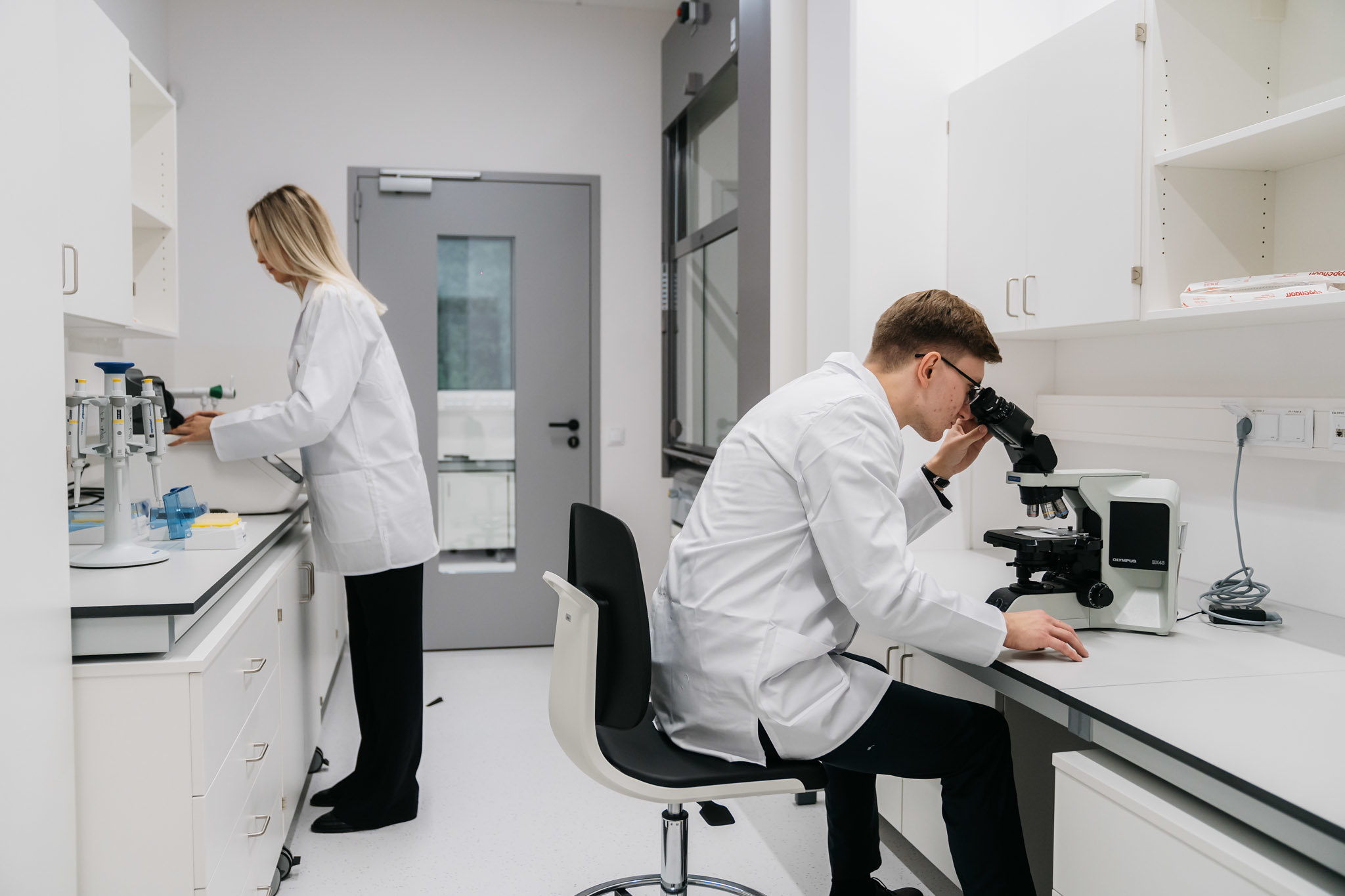VU Experts Help Understand: Nobel Prize in Medicine Awarded to Scientists for Discovering Gene-Regulating MicroRNA
 This Monday, the Nobel Committee at the Karolinska Institute in Stockholm kicked off the 2024 Nobel Prize season. The Nobel Prize in Medicine has been awarded to American professors Victor Ambros and Gary Ruvkun for their discovery of microRNA and its role in post-transcriptional gene regulation. According to Karolis Baronas, a junior assistant and medical geneticist at the Faculty of Medicine, Vilnius University (VU), Harvard University researchers have uncovered a fundamental principle of gene regulation, which is already impacting healthcare and will play an even greater role in addressing various health issues in the future.
This Monday, the Nobel Committee at the Karolinska Institute in Stockholm kicked off the 2024 Nobel Prize season. The Nobel Prize in Medicine has been awarded to American professors Victor Ambros and Gary Ruvkun for their discovery of microRNA and its role in post-transcriptional gene regulation. According to Karolis Baronas, a junior assistant and medical geneticist at the Faculty of Medicine, Vilnius University (VU), Harvard University researchers have uncovered a fundamental principle of gene regulation, which is already impacting healthcare and will play an even greater role in addressing various health issues in the future.
"These scientists view the organism as a system of complex processes. We share the same cells, DNA sequence, and content—the same genes and chromosomes. So, what makes the work of this year’s Nobel laureates stand out? It is their discovery of how, despite having the same genes, we can specifically regulate them in different cells using microRNA and produce functionally distinct cells that form different organs or tissue systems," Baronas explains.
He adds that Professors Ambros and Ruvkun, while studying the development of various cell types, discovered microRNA—a new class of small RNA molecules that play a crucial role in gene regulation. Gene regulation via microRNA works by switching certain genes on or off, leading to the production of different protein structures.
"Protein complexes and their products perform distinct functions, whether in nerve cells, muscle cells, or other types of cells in our body. Different types of cells have different properties or functions. Gene regulation allows each cell type to use only the relevant instructions, ensuring that the appropriate set of genes is active in each cell," says Baronas.
According to the researcher, microRNA-based therapies are being developed and applied to target various types of cancer. MicroRNA is also being used in medicine as a prognostic or diagnostic tool for the rapid and early detection of diseases affecting different systems.
"Certain genetic syndromes are linked to changes in microRNA genes. Alterations in the genetic code or DNA sequence in these RNA genes lead to a range of diseases, such as Duchenne muscular dystrophy, cystic fibrosis, type 1 myotonic dystrophy and others. MicroRNA could be a highly versatile tool not only for stopping specific diseases associated with changes in microRNA genes but also for combating major viruses by developing vaccines and enhancing the human immune system," Baronas believes.
As Baronas explains, if there are changes in microRNA genes that regulate a particular function, the loss of that function inevitably leads to a specific disease phenotype: "Whether the genes that should be expressed are expressed in specific cell lines—all of this can affect cell differentiation. This is the function of microRNA—to ensure that certain genes are expressed only in certain cells."
According to Baronas, cell differentiation is closely linked to cancer. When it is uncontrolled, it can be the cause of such diseases.
"The better we understand how microRNA helps to differentiate cells or change gene expression, the better we will be able to control these processes and develop appropriate therapies. This applies not only to cancer but also to some heart and liver diseases, autoimmune conditions, skin disorders, and neurological symptoms," Baronas adds.
The prize, which consists of a diploma, a gold medal, and 11 million Swedish kronor (nearly €952,000), will be presented to both scientists at an official ceremony on 10 December this year.
Last year's Nobel Prize in Medicine was awarded to Hungarian biochemist Katalin Karikó and American immunologist Drew Weissman for their discoveries related to nucleoside base modifications, which enabled the development of effective mRNA vaccines against COVID-19.
The Nobel Prize in Physics will be announced on Tuesday, followed by the Nobel Prize in Chemistry on Wednesday. The highly anticipated Literature and Peace Prize winners will be revealed on Thursday and Friday, respectively, with the Nobel Prize in Economic Sciences concluding the season the following Monday.